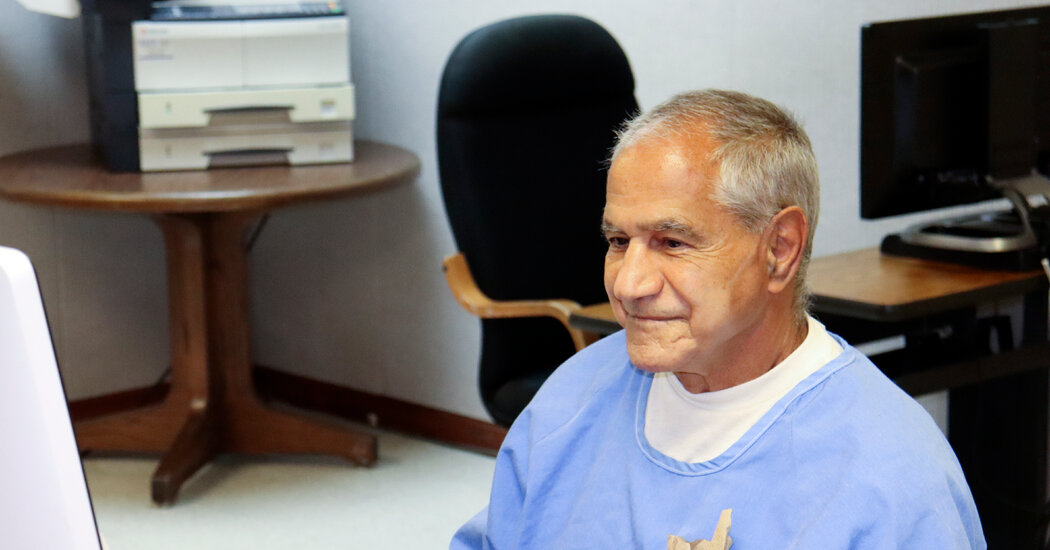Gov. Gavin Newsom was not swayed by a California panel that had advocated the release of Mr. Sirhan, who was convicted of assassinating Robert F. Kennedy in 1968.
Gov. Gavin Newsom of California on Thursday denied parole to Sirhan B. Sirhan, departing from the recommendation of a state parole panel in August that the man convicted of assassinating Robert F. Kennedy be freed.
“Mr. Sirhan’s assassination of Senator Kennedy is among the most notorious crimes in American history,” the governor wrote in his decision, saying he had weighed the recommendation but determined that Mr. Sirhan, 77, who has spent the last 50 years in prison, still poses an unreasonable threat to public safety.
“After decades in prison, he has failed to address the deficiencies that led him to assassinate Senator Kennedy,” the governor wrote. “Mr. Sirhan lacks the insight that would prevent him from making the same types of dangerous decisions he made in the past.”
The announcement, made after nearly five months of deliberation, was widely expected. Mr. Newsom, a Democrat, had noted repeatedly that most of the Kennedy heirs, including Ethel Kennedy, Mr. Kennedy’s widow, opposed Mr. Sirhan’s release, as had state parole commissioners at 15 prior parole hearings. The governor has also repeatedly expressed his admiration for Mr. Kennedy and noted at a news conference in September that “the first photograph — the only photograph — you will see in my office is a photo of my father and Bobby Kennedy just days before Bobby Kennedy was murdered.”
New laws passed after Mr. Sirhan’s previous parole hearing, in 2016, had required the state to consider his advanced age and his relative youth at the time the crime was committed. Mr. Sirhan was 24 when he shot Mr. Kennedy, a New York senator campaigning for president in 1968, in the Ambassador Hotel in Los Angeles. Mr. Kennedy was walking through the hotel’s pantry shortly after winning California’s Democratic primary.
A Jerusalem-born Palestinian who had emigrated to the United States from Jordan, Mr. Sirhan almost immediately confessed; he said in a television interview from prison in 1989 that he had killed Mr. Kennedy because he felt betrayed by the senator’s proposal during the campaign to send 50 military planes to Israel. Since then, however, he has said he does not remember committing the crime.
Factoring in to the recommendation of the parole commissioners was the absence of a prosecutor at the hearing, the first time Mr. Sirhan’s plea for parole went unchallenged by Los Angeles County. George Gascón, its progressive district attorney, has made it a policy for prosecutors not to attend parole hearings, saying the parole board has all the facts it needs to make an informed decision.
At the hearing, which was conducted virtually because of the coronavirus pandemic, Mr. Sirhan said he “must have” brought the gun to the scene but could not recall much about the shooting. His lawyer argued that there was no need to keep the aging man in prison, where he had grappled with a heart condition, prostate cancer and an attempt on his life by another prisoner in 2019.
Robert Barton, one of the two parole commissioners on the panel, noted that Mr. Sirhan had improved himself by taking classes in prison, and two of the senator’s sons urged leniency, diverging from the rest of the family.
One son, Douglas Kennedy, who is a correspondent for Fox News, said he felt “compassion” for Mr. Sirhan, and another son, Robert F. Kennedy Jr., pointed to his “impressive record of rehabilitation.” A prominent promoter of vaccine misinformation, Robert F. Kennedy Jr. has said he thinks Mr. Sirhan is innocent.
But most of the Kennedy family was adamant in insisting that Mr. Sirhan be kept behind bars. Six of the senator’s nine surviving children signed a statement urging the governor not to release the person who “took our father from our family” and “from America.” Mr. Kennedy’s widow, now 93, also urged against parole.
“Our family and our country suffered an unspeakable loss due to the inhumanity of one man,” the family wrote in a statement. “We believe in the gentleness that spared his life, but in taming his act of violence, he should not have the opportunity to terrorize again.”
Nicholas Bogel-Burroughs contributed reporting.


























